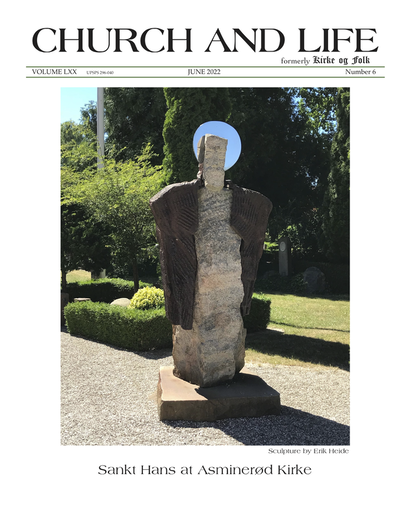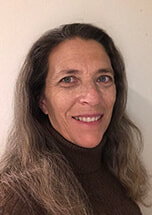 With June come the bonfires of Sankt Hans Aften, so the cover photo features a statue by Erik Heide of the saint that stands near the entrance of Asminerød Church in Fredensborg, Denmark. It is also the season of summer fun and games. Athena Kildegaard calls on a memory of playing leapfrog in the poem “Ode to Frog,” which opens this issue instead of a song, unless you imagine a chorus frogs. An announcement about the Danebod Folk Meeting comes from Anita Young. The next two articles illustrate how Danish folk education has inspired individuals to open folk schools here in the United States. The continuation of the transcript from the video by Jennifer Rose Escobar tells more of the history and principles behind the school recently started by her family outside of Berea, Kentucky. A century before Jennifer traveled to Denmark for an inspiring gathering of folk educators from around the world, Olive Dame Campbell and two other women traveled to Scandinavia with the same intention of getting ideas for a folk school in Appalachia. She tells of her experience and observations in “Impressions of the People’s College of Denmark,” reprinted from a 1924 article in the monthly magazine Scandinavia, which though published in Grand Forks, ND, was “devoted to the interests of Scandinavians everywhere.” Unlike a century ago when lasting peace was imagined, with World War I considered by many to have been the “war to end all wars” and the League of Nations having been established to promote diplomacy, European countries are once again looking at the need for military defenses with the war in Ukraine uncomfortably close. In “Danish Democracy,” Hanna Broadbridge reports on the recent referendum in Denmark concerning whether to join the European Union security and defense policy. Concerns in the United States are often more about domestic issues and individual rights. With the fate of reproductive rights in mind, Rev. Ashley Dellagiacoma affirms in her sermon based on Acts 16:16-34 that it is political to preach the Gospel message of liberation. A freedom that we may take for granted is the freedom of movement. The founding of the Danish American colony in Granly, MS is predicated on this freedom as illustrated in the continuation of the narrative by Ida Larsen as she describes efforts to draw Danish folk from around the country to Mississippi.
0 Comments
Leave a Reply. |
Editor InformationBridget Lois Jensen Archives
March 2023
|
Subscribe | Gift |
Submit an Article |
Contact |
© COPYRIGHT 2019 CHURCH AND LIFE.
|

 RSS Feed
RSS Feed